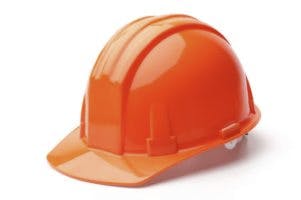Stride Strong Physical Therapy offers an array of services for the injured worker and employer. We focus on preventing re-injury, minimizing work injury related costs, and maximizing productivity.
Our services include:
- Physical Therapy and Rehab
- Work Conditioning and Work Hardening
- Functional Capacity Evaluations
- Post-Offer Employment Testing
Worker's Comp Physical Therapy
All too often we've seen workers get injured on the job because of improper gear, poor body mechanics, or accidents and injuries that could have been completely preventable. All too often we have seen workers get sent to Occupation Health Medicine doctors physicians who a) take too long to provide proper care and b) funnel workers into their own physical therapy clinics as a way to get kickbacks or financial gain by keeping workers comp claims in-house. All too often we have heard workers' complaints that their physical therapist barely evaluate them, not help them and even worse, dismiss them because they are seeing 2-4 patients in an hour to meet their own productivity metrics.
Here at Stride Strong Physical Therapy we promise the following things:
- Patients will be seen within 3 days of making an appointment.
- Our Physical Therapists spend 45 min to 1 hour one-on-one with each of our patients.
- We are committed to providing the best outcome of care for our injured workers. We communicate with the entire team – our patients' physicians, case managers, so everyone is on the same page regarding the care of our patients. This way, healthcare expenditures don't skyrocket out of proportion and care is delivered in an ethical, appropriate and conservative manner.
Work Conditioning and Work Hardening

Patients enter the Work Conditioning and Work Hardening phase of work injury care after they are discharged from Physical Therapy. Typically, they should have minimal to no pain and are well into the restorative phase of their healing. Work Hardening and Work Conditioning is a program to strengthen the worker’s endurance and stamina in simulated job tasks. These job tasks are well-linked to the specific demands of their jobs, so exercises should reflect the accurate frequency and physical loads to mimic that of their typical duties.
Light duty or being off work can adversely affect the worker’s ability to return to full duties and full demands of their jobs. Current research shows that if a worker has taken 6 weeks off of work, he/she has a 10-40% chance of not returning to work for the rest of the year. Research also shows that at 6-month rehab mark, there is a 50% chance the worker will not return to work. Work Hardening and Work Conditioning is needed in order to reduce this loss of productivity.
Following are indications for Work Hardening:

- When a worker has suffered a work-related injury
- When the worker has to be off work or subjected to modified duty restrictions
- When the worker cannot perform essential job duties
- When physically demanding job is involved
- When the worker has limited strength and endurance
- When there is a plateau in physical therapy

Work Hardening usually involves a long stint of physical activities and exercises, and typical sessions last for 3.5 hours or more a day. Workers come in 4-5 days a week to build strength and endurance and gradually progressed in their capacities. We typically see each Work Conditioning patient for an average of 4-6 weeks.
A Work Conditioning session at our clinic will involve general exercises focused on strengthening necessary muscle groups for completion of their job tasks. The worker will perform daily conditioning such as warm ups, resistance exercises and functional activities such as squats, lifts, carries, pushing and pulling and walking.
Goals for Work Conditioning and Work Hardening is to return the worker to prior levels of function for all job-essential activities and work duties. It is also an opportunity where both the patient and the employer can learn strategies to reduce injury on the job.
It is our responsibility for the welfare of our patients to maintain open and constant communication to injured workers' physician and case manager so everyone is updated on status and prognosis for return to work. We are legally obligated to also communicate all pertinent information on attendance and participation. It is important to note that we do not communicate any health-related information to workers' employers.
Functional Capacity Evaluations (FCE's)
Stride Strong Physical Therapy has partnered with PT Solutions' Workplace Solutions to offer Functional Capacity Evaluations for injured workers looking to return to work.
The FCE evaluates an individual's capacity to perform work activities related to his or her participation in employment. Our comprehensive FCE can give you information needed to assign any necessary restrictions so the patient can be matched to positions where they can be most productive and safe. FCE's also allow employers to be less vulnerable to Worker's Compensation claims and possible lawsuits due to safety concerns.
For more details on our FCE program conducted at our Hillsboro location, click here.

Post-Offer Employment Testing (POET's)
Another offering also in partnership with PT Solutions, Stride Strong Physical Therapy offers employers a physical test to ensure new employees have the physical capacity to perform job duties. Physical assessments given to prospective employees after a formal job offer has been made by the employer. In order to be hired, the candidate must pass the physical assessment, to ensure he or she meets the physical demands of the job in a safe manner.
For more details on our POET program conducted at our Hillsboro location, click here.
If you would like to learn more or schedule an appointment, give Stride Strong a call at
References:
- U.S Department of Labor, Dictionary of Occupational Titles, Fourth Edition Revised, 1991
- Occupational Health Guidelines: Work Conditioning and Work Hardening Programs, Amended BOD 03-00- 25-62; BOD 03-99-16-49; BOD 11-94-33-109; Initial BOD 11-92-29-134] [Guideline]
- Work Hardening: Occupational Therapy in Industrial Rehabilitation, Leonard Matheson, Linda Dempster Ogden, Kris Violette and Karen Shultz. 1985.
- Understanding Work Conditioning and Hardening
- Injured workers’ perception of loss and gain in the return to work process
